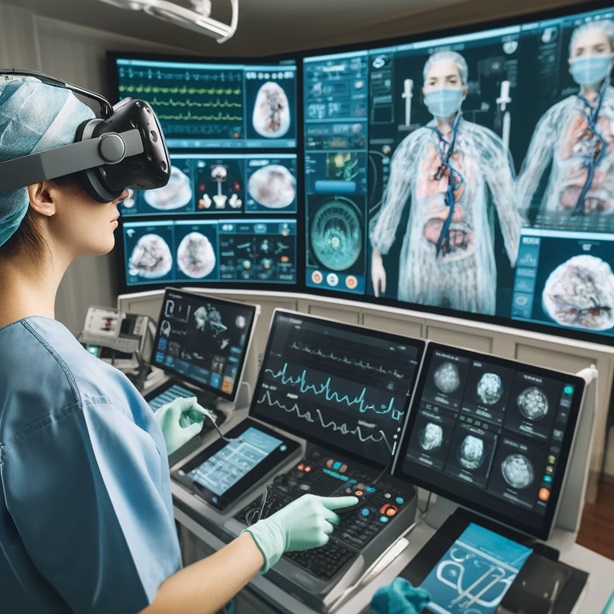The Critical Need for Cognitive Skills in Surgery
Surgical residency demands exceptionally high levels of cognitive performance, encompassing precision, decision-making under pressure, and problem-solving abilities. Given the intense demands of surgery, the development of these skills through targeted brain training can significantly impact a surgeon's ability to perform effectively in the operating room, ultimately influencing patient outcomes.
Beyond the technical skills, cognitive abilities are crucial in navigating the complex and unpredictable nature of surgical procedures. With cognitive training, surgical residents can enhance their focus, manage stress, and improve their overall cognitive function, which are essential for success in high-stakes surgical environments.
Enhancing Mental Precision
Precision in surgery is not only a physical requirement but also a cognitive one. Mental precision is integral to surgical success, influencing the accuracy of movements and the ability to execute complex procedures. Training exercises such as visualization techniques, focused meditation, and specific motor skill enhancements can improve hand-eye coordination and precision during surgical procedures.
Visualization techniques allow surgeons to mentally rehearse surgical steps, enhancing their mental clarity and precision. Focused meditation helps in maintaining composure and concentration during challenging procedures, while motor skill training improves the fine motor movements essential for surgery. By integrating these exercises into their training, surgical residents can significantly enhance their mental precision.
Improving Decision-Making Abilities
Quick and accurate decision-making is critical in surgical settings, where split-second decisions can mean the difference between success and failure. Cognitive training, including problem-solving exercises and scenario-based practice sessions, can help surgical residents enhance their ability to make quick, informed decisions in critical situations.
Scenario-based training, such as simulated emergencies, provides residents with the opportunity to practice decision-making under pressure. Problem-solving exercises, such as logic puzzles and strategic games, enhance cognitive flexibility and critical thinking skills. Together, these training methods prepare surgical residents to handle the unpredictability of the operating room effectively.
Cognitive Training Techniques
Several techniques have proven effective for enhancing cognitive function in surgical residents:
- Memory Training: Techniques such as the method of loci or dual n-back exercises enhance working memory, which is crucial for recalling surgical steps and patient details. By strengthening memory, residents can better retain and recall critical information during surgeries.
- Stress Management Training: Programs like biofeedback and mindfulness can help manage the high-stress levels often experienced during surgical procedures, leading to clearer thinking and better decision-making. Managing stress effectively allows surgeons to maintain composure and focus during challenging operations.
- Simulated Surgical Scenarios: Advanced simulation tools provide realistic practice opportunities, allowing residents to hone their skills in a risk-free environment. These scenarios mimic real-life situations, enabling residents to practice decision-making, precision, and teamwork without patient risk.
- Attention Training: Exercises designed to improve sustained attention and focus are vital for surgeons who need to maintain concentration over long periods. Techniques such as mindfulness meditation and attention games can enhance focus and reduce distractions.
- Problem-Solving Training: Engaging in logic puzzles, strategic games, and scenario-based exercises helps enhance cognitive flexibility and critical thinking, enabling surgeons to adapt quickly to changing situations in the operating room.
Benefits of Cognitive Training in Surgical Education
Integrating cognitive training into surgical education programs can provide numerous benefits. It not only enhances technical skills but also improves cognitive functions such as attention, memory, and problem-solving abilities, all of which contribute to better surgical outcomes.
Through cognitive training, surgical residents can develop resilience, enhance their learning capabilities, and improve their overall cognitive performance. This training fosters a holistic approach to surgical education, focusing on both technical and cognitive skills, ultimately leading to more competent and confident surgeons.
Additionally, cognitive training can improve teamwork and communication among surgical teams. By enhancing cognitive functions, such as attention and problem-solving, residents can work more effectively with their colleagues, leading to better surgical outcomes and improved patient care.
Future Directions in Surgical Cognitive Enhancement
As the field of medical education evolves, the incorporation of cognitive training is becoming increasingly recognized. Future research and development in this area are likely to focus on personalized cognitive enhancement strategies, using advanced technologies like AI and machine learning to further tailor training programs to individual needs.
Personalized cognitive training can address individual strengths and weaknesses, providing targeted interventions that enhance specific cognitive functions. AI-driven training programs can adapt to a resident's performance, offering personalized feedback and tailored exercises to maximize cognitive enhancement.
Moreover, virtual reality (VR) and augmented reality (AR) technologies offer promising avenues for cognitive training in surgical education. These technologies can create immersive training environments, providing realistic scenarios and interactive exercises that enhance cognitive functions and technical skills simultaneously.
Conclusion
The role of cognitive training in enhancing the precision and decision-making skills of surgical residents is invaluable. By embracing these advanced training methods, surgical programs can prepare residents not only to meet the challenges of today's complex medical environment but to excel in them, leading to improved patient care and surgical success.
Incorporating cognitive training into surgical education fosters a well-rounded approach to training, focusing on both technical and cognitive skills. This holistic approach prepares residents for the demanding and unpredictable nature of surgery, ultimately enhancing their performance and contributing to better patient outcomes.
